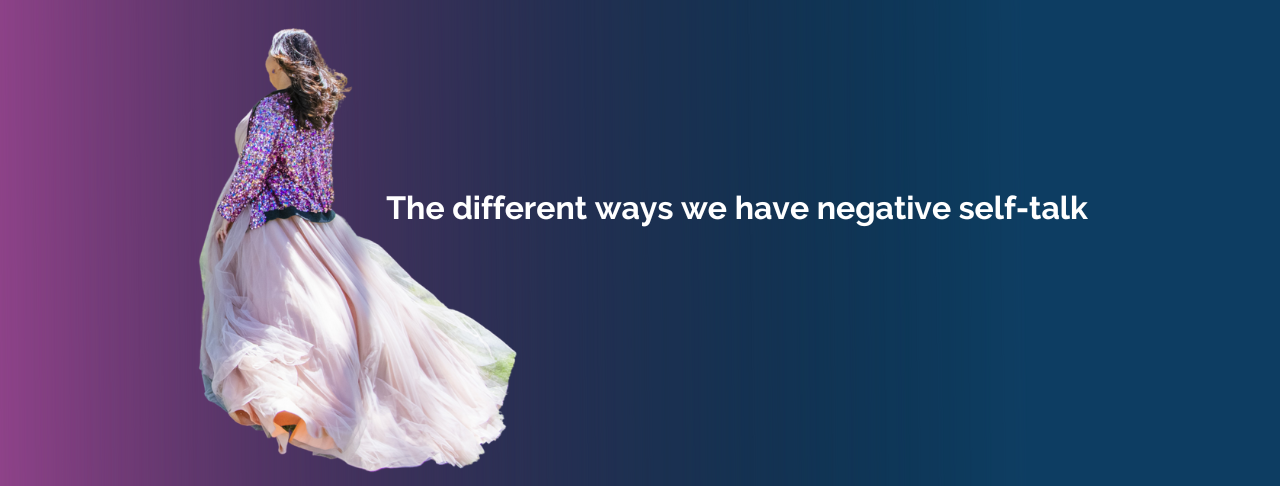My purpose is to help women connect with their inner wisdom, heal their disillusions about themselves and deepen their self love. To have them love who they really are on all levels so they create lives they absolutely love.
HI, I'M LAUREN
ORDER MY BOOK
"Your Happily Ever After"
GET YOUR COPY NOW

The different ways we have negative self-talk
Virginia Satir, a family therapist who greatly influenced NLP, saw thousands of clients coming to her who were on the verge of separating. They would come out of her therapy room resolved and united. She created a model called the Meta Model since she noticed her clients were conflicted because they were making many distortions, deletions, and generalisations about the other person. Mostly in their language, towards and about each other. A distortion from the Meta Model is mind-reading, claiming to know what the other person is thinking. This is also an example of how we can distort our thinking inside of our minds as we make up stories about others and what they might think of us. If you would like a copy of the Meta Model, which comes out of my NLP Training manual, email me, and I can send you a copy. Mind reading is just one type of cognitive distortion.
In the 1970s, psychologist Aaron Beck proposed the theory of cognitive distortions. He noticed many of his patients who experienced depression relied on false assumptions and errors in thinking. He believed if his patients could change those inaccurate thoughts (cognitive distortions), they would be able to change their symptoms of depression.
Beck’s student, Dr David Burns, continued the research on cognitive distortions and popularised the concept with his book, Feeling Good: The New Mood Therapy, in which he shared common examples of cognitive distortions. Dr David Burns also did a TED talk called Feeling Good, where he explained some great examples of distorted thinking and how he encouraged his clients to challenge those thoughts.
Here are some of the cognitive distortions we can become aware of inside our minds. In knowing these exist, I can catch myself more quickly, allowing me to observe myself gently and acknowledge the thoughts. Whilst knowing that this very likely is an untrue story I am telling myself. I have noticed my default distortions are; catastrophising, the fallacy of fairness, emotional reasoning, and personalisation. See which ones you tend to do more commonly from the list below.
They include:
- Overthinking or overanalysing where the stories get more complex with more and more mind-reads of what we think others might be thinking.
- Jumping to conclusions or mind-reading, such as needing to predict future outcomes and being convinced we know what others will do and are thinking.
- All-or-nothing thinking or polarised thinking where it is either one thing or the opposite with no middle ground. For example, ‘I either get it perfect, or I don’t do it at greall.’
- Catastrophising or exaggeration is when we think of the worst-case scenario and magnify certain aspects of a situation. Also trying to solve all these made-up, magnified future problems in our mind.
- Personalisation is where we feel directly responsible for events which are out of our control and can quickly think we might have done something wrong when we haven’t.
- Filtering removes and discounts the positives whilst focusing only on a situation’s negatives.
- Fallacy of change is thinking others will meet our expectations and needs if we pressure them enough.
- Control fallacies are when we believe we control others and situations entirely or feel we have no control over anything.
- Fallacy of fairness is feeling resentful when others don’t measure fairness in the way we do and when we assume all things in life should be applied and measured based on fairness.
- Overgeneralisation is when we take an isolated event and turn it into a belief we will continue to experience, and it becomes a self-defeating pattern. For example, ‘I am just not good at attracting the right partner.’
- Blaming others for how we feel and constantly feeling like the victim.
- Always being right causes us to feel we need to be correct. Being wrong is unacceptable, and one can go to great lengths to prove it.
- Emotional reasoning is seeing the situation through emotions, not facts.
- Should Statements are telling ourselves and others we should, shouldn’t, or must do something with rigid rules, creating a lot of pressure on a situation. It can create guilt, frustration, even anger and resentment when disappointed by the outcome.
- Labelling is assigning labels to people based on an isolated event. Not considering the other behaviours of the person and discounting other times but immediately overgeneralising the person from one incident.
Aren’t these helpful to know? We have all done some or all of these at some point in our lives. Since coming across these terms, I can realise when my thoughts are just a distortion and reframe myself out of them. We can move through these thoughts, think about them much less often and recover from them.
This is an excpert from my book Your Happily Ever After and you can order your copy at www.laurenjobson.com/bookorder
Leave a Reply Cancel reply
PRIVACY POLICY |
SITE TERMS AND CONDITIONS
LOVE LIFE WITH LAUREN - COPYRIGHT 2022 ©
leave a comment